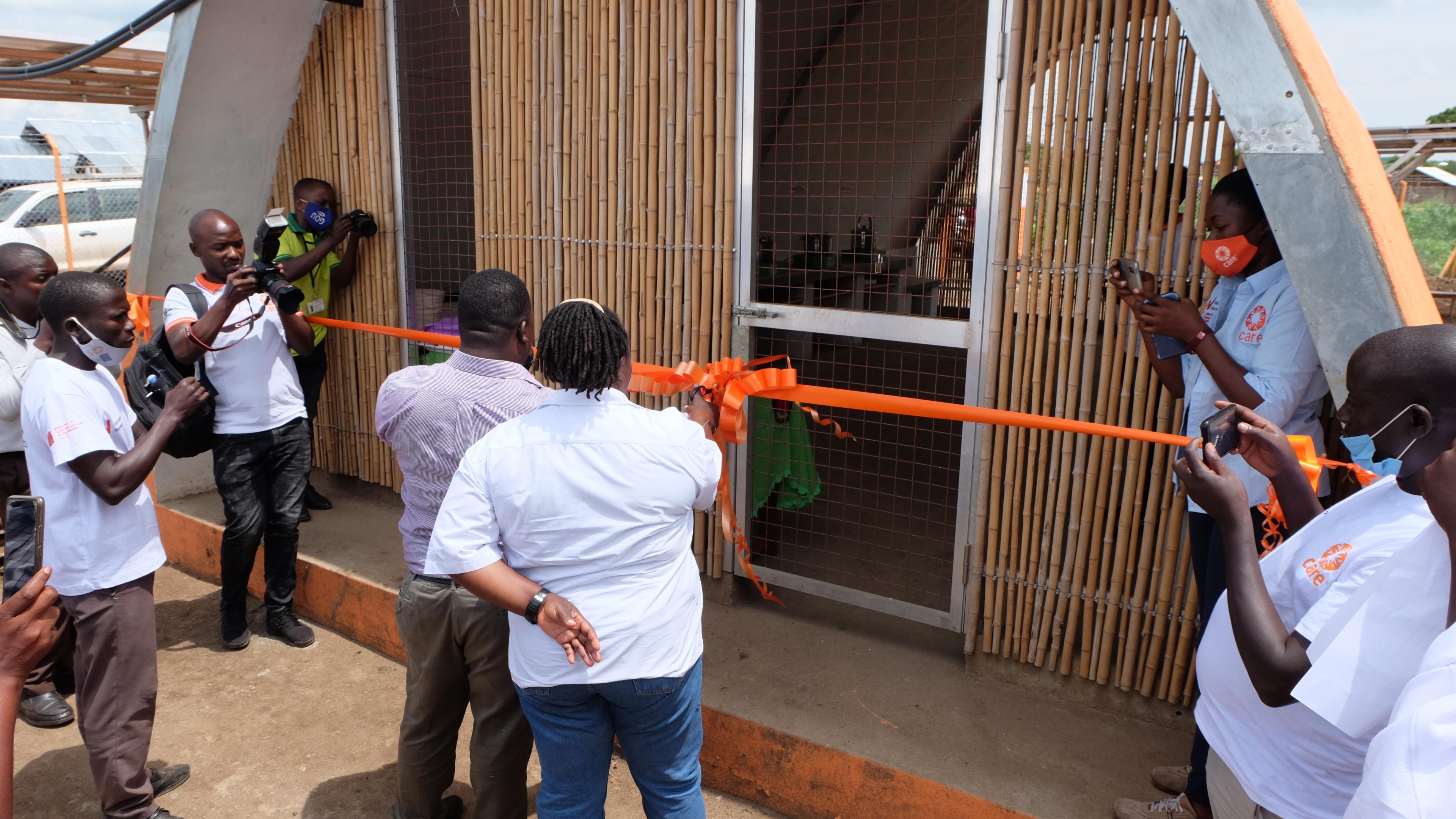The world's first sustainable refugee settlement: Camp+
 © CARE
© CAREWhat is the challenge?
The environmental impact of refugee settlements is significant, and at the same time displacement situations are increasingly becoming more long-term. Uganda is host to more than 1.3 million refugees and is witnessing severe environmental degradation because of the increased influx, and food aid is unable to meet the nutritional needs of refugees.
What is innovative about the project?
The Camp+ project was supported through the Innovation Lab and is now scaling up to reach more people in Uganda. The innovativeness of this project lies in the combination of the holistic approach to building a climate smart refugee settlement in combination with underlying business models and circular approach. During the pilot phase Innovation Norway supported solar-powered community kitchens that amongst other thing can reduce deforestation around refugee settlements and the exposure to violence experienced by women collecting firewood. Here refugees can cook food for a small fee and charge their mobile phones at the same time. Other solutions in the project include the solar-powered plastic recycling center, Plastic+, that has been established to turn plastic waste into new products that can be sold in or outside the settlement, creating jobs and income opportunities. They are currently producing roof tiles and combs. The project also contributed to increased food and nutrition security by supporting more sustainable food production on the small plots that refugees are allocated, reducing dependency on food aid and giving refugees improved livelihood opportunities.
This scaling project will build on the solutions already tested in the pilot and consolidate the operational models, develop and test the appropriate scaling and diffusion plans, and support the scaling process.
What are the expected outcomes?
Through the scaling programme, the community kitchens will be developed into a scalable self-sustaining model for replication and scaled up in additional locations within the Kyangwali refugee settlement and West Nile. The project team will develop a carbon credit-based system as a sustainable funding stream for maintenance of community kitchens and roll-out of household cookers. The plastic recycling unit will be developed into a full capacity production entity, which receives and processes plastic waste from the settlement and the host community and developed into a scalable model for replication by other partners. Furthermore, the project will scale up practices for greening food production systems among refugee and host community households.
Who are the project partners?
CARE Norway, CARE Denmark, CARE Uganda, Lendager Group, PESITHO, LLa Bioeconomy, SLA, Community Development Resource Network (CDRN), TakaTaka Plastics, Mottelson Consultancy, Lifeshelter.